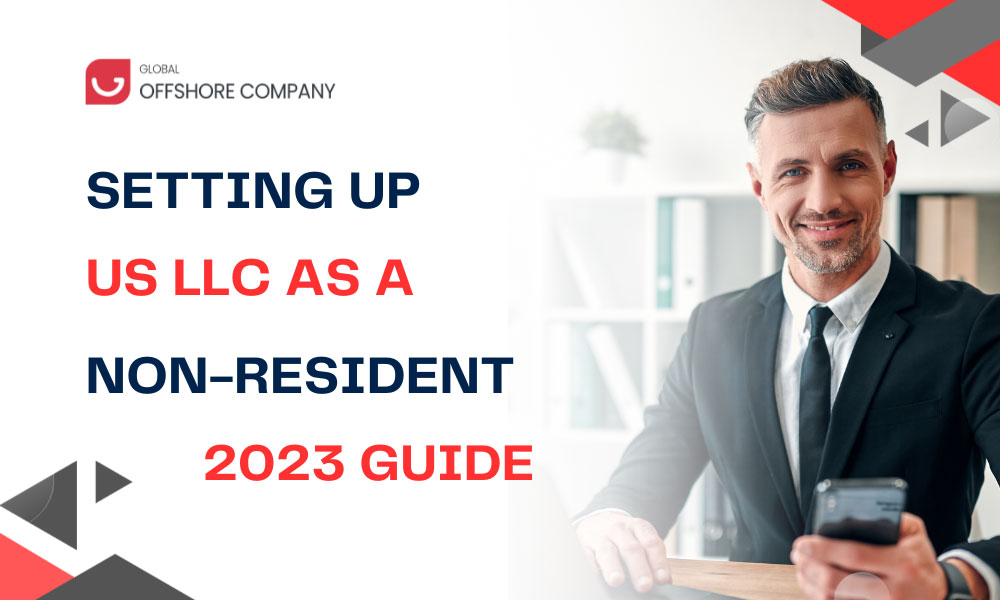Annual Compliance Requirement for Non-Resident Owners of US-LLCs
For non-US residents who have established a US LLC, the annual compliance requirements are relatively straightforward. Our definition of annual compliance encompasses your obligations at both the federal level with the IRS and the state government level.
In this article, we will delve into what needs to be filed with the IRS and your respective state authorities.
Assumptions
Before we proceed, it's essential to clarify the context of this article. We intend to provide a summarized overview of compliance requirements within specific parameters. These parameters assume the following:
1. Non-US Resident Status: You are a non-US resident and do not meet the Substantial Presence Test, as outlined by the IRS.
2. US LLC Activity: Your US LLC is not engaged in Foreign Trade or Business in the US (ETBUS), and it generates Effectively Connected Income (ECI) or all its income originates from sources within the United States related to the conduct of that trade or business. Please read this guides.
3. Tax Classification: You have not elected for your US LLC to be taxed as a C-Corporation via Form 8832.
4. Membership Composition: Your US LLC does not have any US citizens or US residents as members.
If any of these assumptions do not align with your situation, we recommend pausing here and contacting us at info@globaloffshorecompany.com for tailored guidance.
Federal Level Compliance
If you meet the criteria above, this section is pertinent to you.
At the federal level, your compliance obligations fall under the purview of the Internal Revenue Service (IRS), responsible for overseeing all tax-related matters. As mentioned in our US-LLC Guide for non-residents, if you are not ETBUS and have ECI, you are not required to pay taxes. However, this does not exempt you from fulfilling certain minimum filing obligations with the IRS annually. Rest assured, by following the steps outlined in this guide, you can navigate this process smoothly without any unwelcome surprises.
We will differentiate most cases into two categories:
- Single-Member LLC (SMLLC): If you are the sole member of your LLC, it is categorized as a Single-Member LLC.
- Multi-Member LLC: If your LLC has more than one member, it falls under the classification of a Multi-Member LLC.
In the following sections, we will outline the compliance requirements for each of these scenarios.
Single-Member LLC and the Form 5472/Pro-Forma 1120
A Single-Member LLC is considered a disregarded entity for US tax purposes. As the owner of a foreign-owned Small Business LLC, you are required to annually file Form 5472 and Pro-Forma Form 1120. These filings are essential for reporting Reportable Transactions with your non-US owner and other Related Parties to the Internal Revenue Service (IRS).
Reportable Transactions encompass financial movements or property transfers between an LLC and its foreign owners. These transactions include, but are not limited to:
- Fees paid by a Related Party or foreign owner to establish, dissolve, or file an LLC with the state.
- Capital contributions by a Related Party owner.
- Capital distributions by the LLC to a Related Party.
- Loans provided by the Foreign Owner to the LLC or loans from the LLC to Related Parties.
- Transactions involving the LLC and a Related Party, such as purchases, sales, assignments, leases, licenses, loans, advances, or contributions.
The term "Related Party" is comprehensively defined in Section 1.6038A-1(d) of the Internal Revenue Code. Its inclusiveness covers:
- You, the LLC Owner.
- The LLC owner's immediate family members.
- Other companies directly or indirectly owned by the LLC's owner.
To ascertain who qualifies as a Related Party and who does not, we strongly recommend consulting us or your tax advisor.
Form 5472, accompanied by your company's Pro-Forma 1120, must be submitted by the 15th of April. If you file for an extension using Form 7004, you are granted an additional 6 months, extending the deadline to the 15th of October.
Multi-Member LLC Taxed as a Partnership
A Multi-Member LLC is inherently regarded as a partnership for US tax purposes, unless you opt to classify it as a C-Corporation through Form 8832.
For Multi-Member LLCs, there is no requirement to file Form 5472 or Pro-Forma 1120. However, you must file an annual tax return using Form 1065. Additionally, Form 1065 necessitates the submission of Schedules K-1, K-2, and K-3 for each partner. It's important to note that the IRS introduced the requirement for Schedules K-2 and K-3 starting in 2021.
This assumes that your US LLC does not generate US source income effectively connected with a US trade or business; otherwise, Forms 8804 and 8805 would also be necessary.
Form 1065 returns are due by March 15 of each tax year. However, entities can apply for an automatic extension through Form 7004, which extends the due date to September 15. It's worth mentioning that if you do not have an office in the United States and maintain your books and records outside the country, the deadline is automatically extended to June 15.
Minimum Filing Obligations at the Federal Level
Non-US founders should be aware that the LLC will have at least some minimal filing obligations, regardless of the situation. This may involve filing Form 5472 for foreign-owned Single-Member LLCs categorized as disregarded entities or submitting Form 1065 for Multi-Member LLCs taxed as partnerships. Failure to file these tax returns on time can lead to substantial penalties imposed by the IRS.
For foreign-owned Single-Member LLCs, the penalty for failing to timely file Form 5472 is $25,000. In the case of late filing for Form 1065, penalties amount to $205 per month for each partner in the partnership for the duration in which the return is overdue.
State Level
Income Tax Nexus
When it comes to state-level compliance for your US LLC, it's important to consider state corporate income tax laws. Some states, like California, Texas, and New York, have corporate income taxes, while others, like Delaware, do not.
If your US LLC is not Engaged in Trade or Business in the United States (ETBUS) and does not have Effectively Connected Income (ECI) linked to a US Trade or Business, it's generally safe to assume that you are not subject to state corporate income tax.
It's important to note that corporations do not automatically owe income tax to a state. They must establish a nexus, a connection between their activities and the state, to become subject to state income tax. The existence of an income tax nexus in many states is determined by substantial economic activity.
Each state has specific rules governing what activities establish nexus for a business. These rules may include, but are not limited to, earning income in the state or having employees, an office, or goods stored in state warehouses.
Annual Report and Franchise Taxes
Now that we've covered state corporate income tax, let's delve into the other annual filing requirements with your registered state.
Many states will require you to file an Annual Report with the Secretary of State's office. Annual reports are typically straightforward forms in which you affirm, under penalty of perjury, that your US LLC complies with state statutes and has no outstanding taxes or fees. Filing these reports is essential to maintain your LLC's good standing with the state.
The names of these reports may vary from state to state. For example, some states use terms like Biennial Occupational Tax Report (Nebraska), Annual List (Nevada), Statement of Information (California), or Franchise Tax (Delaware). Despite the differences in names, these forms essentially serve the same purpose.
Failure to file an annual report on time can result in penalties and, in some cases, the dissolution of your US LLC from the state's registry. Your LLC's Registered Agent can assist you with the filing of the Annual Report. Explore our USA-Delaware company formation services here.
Conclusion
In summary, this article emphasizes the importance of understanding and fulfilling the various obligations associated with registering an LLC in the United States. Once you are acquainted with these requirements, maintaining compliance for your US LLC becomes relatively straightforward, as long as you adhere to the rules.
It's crucial to remember that this article is intended as a general guideline and not as legal advice. For precise guidance, consult with your accountant, lawyer, or tax professional. If you haven't explored our other articles on this topic, we recommend starting with our 2023 Guide to US-LLC for Non-Residents articles (part 1 & part 2).
Disclaimer: While Global Offshore Company (G.O.C) endeavors to provide timely and accurate information on this website, the content is intended for reference purposes only. The information presented in this article should not be considered a replacement for qualified legal advice. For personalized guidance on your specific circumstances, we encourage you to reach out to G.O.C's experienced consultants.











